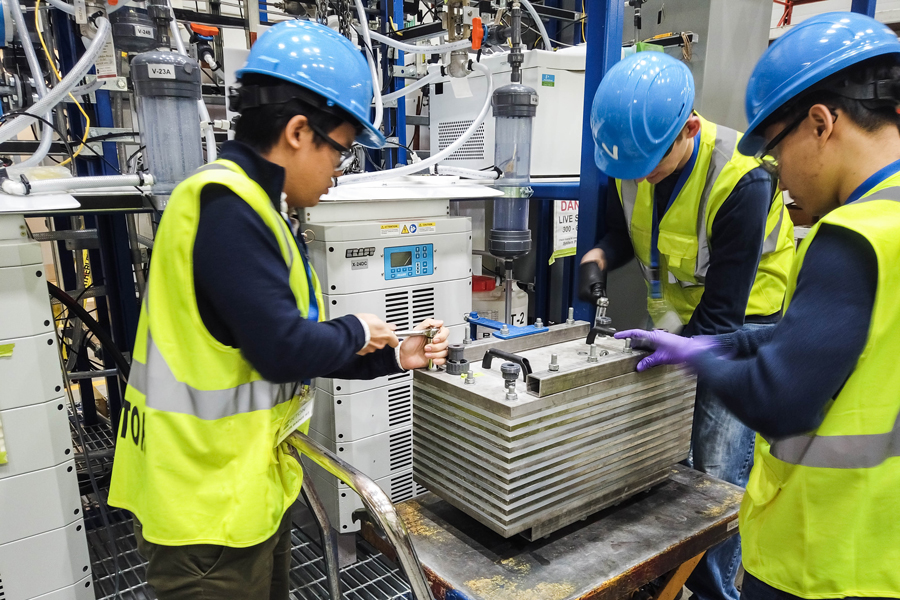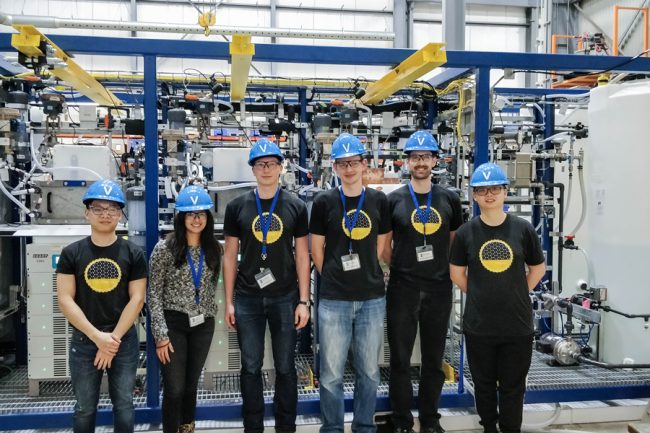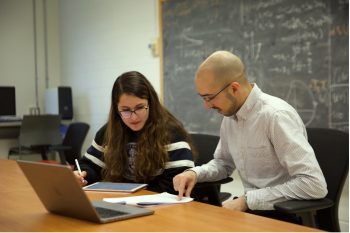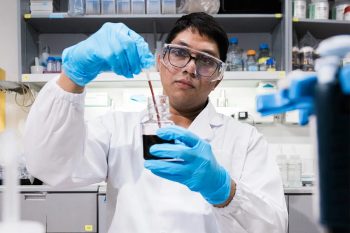U of T Engineering spinoff CERT Systems Inc. has received support from Breakthrough Energy Solutions Canada to advance an innovative system that transforms CO2 into valuable products.
The company builds upon research from two U of T Engineering lab groups, led by professors David Sinton (MIE) and Ted Sargent (ECE). CERT is among 10 winners in the competition, each of whom could receive up to $3 million to develop their clean energy technologies.
“Being part of this competition has been a wonderful experience,” says Alex Ip, Director of Partnerships at CERT. “It’s amazing to see how many bright minds from across the country are focused on this challenge. The fact that we are among the winners is a huge vote of confidence in our technology.”
Breakthrough Energy Solutions Canada brings together clean technology innovators and investors from across Canada and beyond. It is organized by Natural Resources Canada (NRCan), in partnership with Gates Ventures, Breakthrough Energy Ventures, the Business Development Bank of Canada, Export Development Canada and other key stakeholders.
Last month, 22 clean technology startups gathered in Ottawa to pitch their business plans to a panel of experts at the forum. The winners were announced today by Minister of Natural Resources Seamus O’Regan at the GLOBE 2020 forum in Vancouver.
CERT’s technology centres on electrolyzers, that is, devices that use electricity to drive a chemical reaction. In particular, they design electrolyzers that convert CO2 into carbon-based fuels, such as ethanol, or other commercially valuable chemicals, such as ethylene, which is used in everything from antifreeze to lawn furniture.

“Today most of our fuels and plastics come from oil,” says Christine Gabardo, Director of Technology at CERT. “If we can instead make these same products via electrochemical conversion of CO2, we can reduce the use of fossil fuels and increase the economic incentives to capture carbon. And if we use renewable electricity, the whole process is carbon-neutral.”

The challenge is that the cost of producing fuels and plastics from CO2 using electrolyzers is currently higher than that of producing them from oil. By leveraging their expertise in nanotechnology, materials science, catalysis and artificial intelligence, CERT is designing next-generation electrolyzers that can close this gap.
Learn more about U of T Engineering research on advanced electrolyzers for carbon conversion.
In addition to the Breakthrough Energy Solutions Canada award, CERT is among the finalists in the NRG COSIA Carbon XPRIZE, a $20 million competition to design technologies to upgrade CO2 into valuable products.
For the past 18 months, the team has been building and testing their prototype electrolyzer at a pilot facility hosted by Zeton Engineering in Burlington, Ont, with major funders including the Ontario Centres of Excellence (OCE).
“CERT is living-proof that you don’t need to travel outside of Ontario for world-class research and talent,” says Claudia Krywiak, CEO of OCE. “OCE is proud to have provided the necessary early-stage support to move these transformative new technologies out of the research lab and into the marketplace to drive the economy of the future.”
The University of Toronto also financially supported the project, with the goal of creating a future pilot project on campus.
“Supporting the CERT team has been an opportunity to leverage research and build foundational carbon conversion capacity as part of the University’s Low Carbon Action Plan,” says Ron Saporta, U of T’s Chief Operating Officer. “It has been great to work with the team in initiative, and we are looking forward to having this technology come back home to our campus.”
In January, they moved their prototype to a pilot plant at the Alberta Carbon Conversion Technology Centre, located next to the Shepard Energy Centre natural gas plant in Calgary, Alta and managed in partnership with InnoTech Alberta.
“Watching the progress of this team over the past few years has been extremely rewarding,” says Sinton. “We’ve been able to achieve fundamental advances in terms of the underlying science and technology, while marching toward commercialization and scale. This latest award helps us build even more momentum.”



